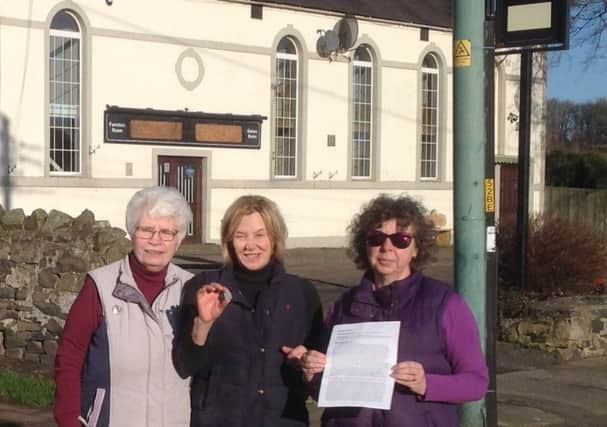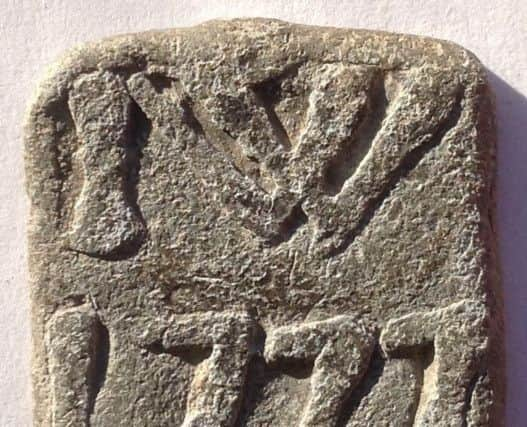Belford museum's acquisition of 18th-century communion token


The village’s Hidden History Museum has acquired a communion token dated 1777 – the year after the Scotch Church was founded.
The former church building houses the memorial hall/community club which is now under threat of closure.


Advertisement
Hide AdAdvertisement
Hide AdIn the 18th century, many Scots settled in and around Belford, brought either through agricultural work or trade. These incomers did not accept the form of worship used in the parish church and petitioned the Squire for land to build a church where they could worship after the Presbyterian fashion.
This was granted and, in 1776, the Scotch Church opened for worship in West Street. Almost immediately, however, it ran into difficulties as the congregation, who appointed their own ministers, could not agree as to which of two men should serve – James Waters or Matthew Poole.
As a result, in 1777, the congregation split, those remaining in the Scotch Church with James Waters, and the others, with Matthew Poole, setting up a new church, which became known as the Erskine Church, in Nursery Lane, and is the origin of the URC church there today.
A feature of Presbyterian churches at that time was that the minister and elders restricted the bread and wine of communion services to those thought to lead a good and God-fearing life and these services took place only four times a year.


Advertisement
Hide AdAdvertisement
Hide AdIn the week before the service, those considered worthy were given a small token, which they had to present in the church before they shared in the bread and the wine.
Belford’s museum now has an example of the earliest of these tokens from the Scotch Church. It is made of lead and dated 1777, when the Presbyterian church in Belford split permanently, and bears the initials IW for James Waters, who remained minister at the church until 1788.
The museum is particularly grateful to Ian Martin, from the KOSB Museum, who enabled the team to identify the token.